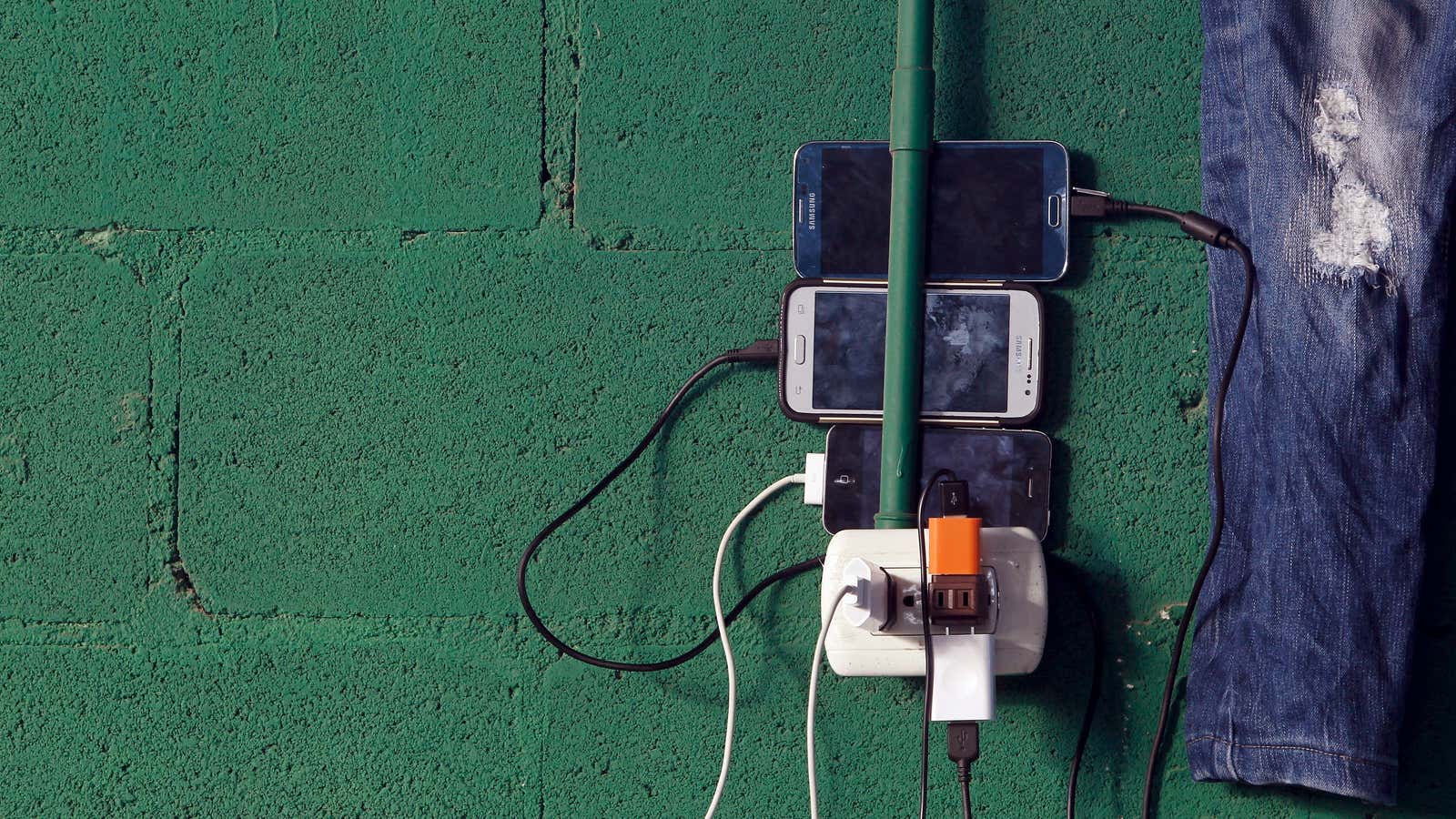USB ports are ubiquitous on our electronic devices as a way to charge them and transfer data. But they’re also an easy entry point for malware or other nasty viruses.
Enter the USB condom. These prophylactics for your digital devices are plugged to the end of a USB cable, and allow electricity to flow through while preventing data from being transferred or accessed. People seem to be fascinated by them.
This tweet by British technology lawyer Neil Brown about a two-pack of data blockers he bought on Amazon is testament to that (note the retweets and likes)—they even piqued the interest of legendary sci-fi writer William Gibson:
A two pack of the attachments costs $12.49 on Amazon, and they’re touted as removing the risk of hacking or contracting viruses when a device is plugged in to public USB ports, or computers that a user can’t vouch for. The device also speeds charging by up to four times, claims its maker, a company called PortaPow.
Brown follows data-privacy issues closely, so he already uses a virtual private network—a way to connect to the internet without giving away your individual details—and has a slider over his computer’s webcam. But he was floored by the attention the USB condoms got. “I mean, when I tweeted about stick-on webcam covers, which I also think are rather cool, [the response was] pretty much nothing,” he says.
Brown’s tweet has turned into sales for PortaPow, which says it has seen a “noticeable increase” in check-outs for the product, although it won’t divulge figures.
USB connectors contain pins that transfer data or electricity. Removing the data pins means only electricity gets transferred when a connector is plugged in. You can even make your own with a bit of soldering. PortaPow is far from the only vendor selling USB data blockers. A company called SyncStop sells them (it says it coined the term in 2013, although PortaPow says it’s been selling cables that prevent data-transfer since 2008) in bulk to clients like Morgan Stanley and Facebook, according to its website.
